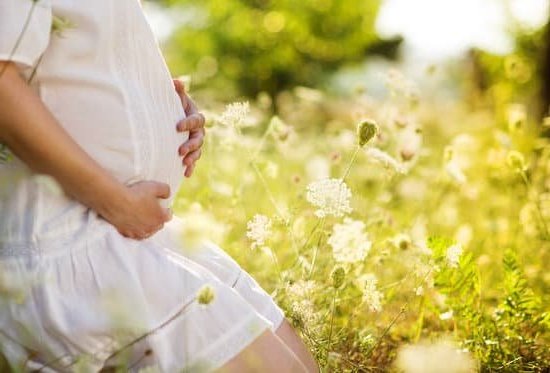What is considered a geriatric pregnancy, also known as advanced maternal age pregnancy, is when a woman becomes pregnant at the age of 35 or older. In recent years, there has been a growing interest and discussion around this topic due to shifting societal norms and changing fertility trends. More women are choosing to delay starting a family for various reasons such as pursuing career goals, financial stability, or finding the right partner.
As women age, their fertility naturally decreases, and the likelihood of experiencing complications during pregnancy increases. This shift in the age demographic of expectant mothers has led to increased scrutiny on what constitutes a geriatric pregnancy and the associated risks and benefits that come with it. Understanding the nuances of geriatric pregnancies is crucial for both medical professionals and women considering starting a family later in life.
Exploring the concept of geriatric pregnancies involves delving into factors that impact fertility, prenatal care requirements, potential risks and complications, as well as available support and resources for older expectant mothers. By shedding light on these aspects, we can provide valuable insights for women navigating the journey of pregnancy at an advanced maternal age. Stay tuned as we delve deeper into defining geriatric pregnancies and unraveling the complexities surrounding this topic.
Definition of a Geriatric Pregnancy
A geriatric pregnancy is typically defined as a pregnancy that occurs in women who are 35 years of age or older. The term “geriatric pregnancy” may seem outdated or even offensive to some, but it is still commonly used in medical literature to refer to pregnancies in women considered advanced maternal age.
Advanced maternal age pregnancies have been on the rise in recent years, with more women choosing to delay childbearing for various reasons such as career advancement, financial stability, or personal choice.
Factors such as declining fertility, increased risk of chromosomal abnormalities like Down syndrome, and higher chances of pregnancy complications are reasons why pregnancies in older women are categorized differently. While many women in their late 30s and early 40s can conceive naturally and have healthy pregnancies, there are still increased risks associated with getting pregnant at an older age.
Women who are considering starting a family later in life should be aware of these factors and consult with their healthcare providers to make informed decisions about their reproductive health.
It is important for women over the age of 35 who are planning to get pregnant or have already conceived to understand the unique challenges and potential risks that come with a geriatric pregnancy. From fertility issues to possible complications during childbirth, being aware of what is considered a geriatric pregnancy can help expectant mothers navigate their prenatal journey with the necessary knowledge and support.
Ultimately, every pregnancy is different, and individual circumstances play a significant role in determining the outcome of a geriatric pregnancy.
Factors Impacting Geriatric Pregnancies
Challenges of Getting Pregnant at an Older Age
Pregnancy at an older age, also known as a geriatric pregnancy, comes with its own set of challenges. One of the primary concerns is the increased risk of chromosomal abnormalities in the fetus, such as Down syndrome. This risk significantly rises for women over the age of 35 due to the higher likelihood of errors in cell division during egg development. Additionally, older mothers may face a higher incidence of miscarriages and pregnancy complications like gestational diabetes and preeclampsia.
Health Risks for Older Mothers
As women age, their bodies undergo natural changes that can impact their ability to carry a healthy pregnancy. Advanced maternal age is associated with a higher likelihood of developing chronic health conditions like hypertension, diabetes, or heart disease-factors that can complicate pregnancy and pose risks to both mother and baby. Older mothers also have an increased chance of requiring interventions during labor, such as cesarean sections, due to potential difficulties in childbirth.
Social and Emotional Considerations
In addition to the physical challenges, getting pregnant at an older age can bring about social and emotional considerations for expectant mothers. Some women may face societal pressures or judgments regarding their decision to have a child later in life.
It’s essential for older mothers to be mentally prepared for the demands of raising a child at an advanced age and ensure they have adequate support systems in place. Seeking counseling or joining support groups specifically tailored for geriatric pregnancies can help navigate these emotional complexities effectively.
Benefits of Geriatric Pregnancies
As women age, the decision to have a baby later in life comes with its own set of benefits and advantages. One of the primary benefits of geriatric pregnancies is the emotional maturity and stability that older mothers often bring to their parenting journey. Having had more life experiences and possibly established careers and stable relationships, older mothers may approach motherhood with a greater sense of preparedness and confidence.
Another positive aspect of having a baby later in life is the potential financial stability that many older parents have achieved. With more established careers and potentially higher incomes, older mothers may feel more financially secure when considering expanding their family. This can lead to less stress about providing for the child’s needs and can allow for more resources to be allocated towards the child’s upbringing and education.
Additionally, research has shown that children born to older mothers may benefit from certain advantages such as increased cognitive development and social skills. Older parents often have more time to dedicate to their children, which can result in a nurturing and intellectually stimulating environment for the child to grow up in.
Overall, while geriatric pregnancies come with their own set of challenges, it is important to recognize and appreciate the positive aspects that come with choosing to have a baby later in life.
| Aspect | Advantage |
|---|---|
| Emotional Stability | Greater sense of preparedness and confidence in parenting |
| Financial Stability | Potentially higher incomes leading to financial security for the child |
| Child Development | Potential advantages such as increased cognitive development and social skills |
Fertility Issues in Geriatric Pregnancies
As women age, their fertility naturally decreases, and this decline becomes more pronounced once they reach a certain age. In terms of pregnancy, a woman is considered to be experiencing a geriatric pregnancy if she is 35 years old or older.
This classification is based on the increased risks and challenges that come with conceiving and carrying a baby at an older age. However, it’s important to note that many women in their late 30s and even 40s can still have healthy pregnancies, but it may require some extra considerations.
Some of the factors contributing to fertility issues in geriatric pregnancies include a decrease in the number and quality of eggs, as well as an increased risk of chromosomal abnormalities such as Down syndrome. Additionally, older women may also have underlying health conditions that can impact their ability to conceive or carry a pregnancy to term. Despite these challenges, there are several potential solutions available for women seeking to improve their chances of getting pregnant later in life.
Here are some common solutions that women exploring geriatric pregnancies may consider:
- Consulting with a fertility specialist to discuss assisted reproductive technologies such as in vitro fertilization (IVF)
- Considering egg freezing at a younger age to preserve fertility
- Maintaining a healthy lifestyle through diet and exercise to optimize fertility
By being proactive about addressing fertility issues and seeking appropriate medical guidance, women can navigate the complexities of geriatric pregnancies more effectively. It’s essential for older women who are considering starting a family later in life to be aware of these factors and options available to them in order to make informed decisions about their reproductive health.
Prenatal Care for Geriatric Pregnancies
As women age, their bodies undergo various changes that can impact their ability to conceive and carry a pregnancy to full term. This is why specialized prenatal care for older expectant mothers, also known as geriatric pregnancies, is crucial. But what is considered a geriatric pregnancy? In the medical field, any pregnancy occurring in a woman aged 35 years or older is often classified as geriatric due to the increased risks associated with bearing children at an older age.
Older pregnant women are more likely to experience complications such as gestational diabetes, high blood pressure, placental problems, and chromosomal abnormalities in the fetus. Therefore, receiving proper prenatal care tailored to their specific needs is essential for ensuring the health and well-being of both mother and baby. This specialized care may involve more frequent monitoring of maternal health, screenings for genetic conditions, and heightened awareness of potential risks that come with advancing maternal age.
In addition to medical interventions, prenatal care for geriatric pregnancies also emphasizes lifestyle modifications that can support a healthy pregnancy. This may include maintaining a balanced diet rich in essential nutrients, engaging in regular physical activity suitable for expectant mothers, and managing stress levels effectively. By addressing these aspects comprehensively through specialized care, older women can increase their chances of having a successful pregnancy and welcoming a healthy baby into the world.
| Important Aspects | Importance |
|---|---|
| Specialized Care | Crucial for managing risks and complications |
| Lifestyle Modifications | Supports a healthy pregnancy outcome |
Risks and Complications
Advancing maternal age increases the risk of several health complications during pregnancy, making it crucial to understand what is considered a geriatric pregnancy in order to manage potential risks effectively. A geriatric pregnancy is generally defined as a pregnancy that occurs in women aged 35 and older.
This classification is based on the increased likelihood of various health concerns associated with conceiving at an older age. Women in this age group may face challenges such as pre-existing medical conditions, reduced fertility, and increased risk of genetic abnormalities in their offspring.
One of the primary health risks associated with geriatric pregnancies is a higher incidence of chromosomal abnormalities in babies, particularly Down syndrome. As women age, the quality of their eggs decreases, leading to an increased likelihood of genetic anomalies during conception. Additionally, older expectant mothers are more susceptible to developing gestational diabetes, high blood pressure, and preeclampsia during pregnancy. These conditions can have serious implications for both the mother and the baby if not properly monitored and managed.
Moreover, geriatric pregnancies are often linked to an increased risk of miscarriage and stillbirth compared to pregnancies in younger women. Advanced maternal age can also raise the chances of placental complications such as placenta previa or placental abruption, which may require medical intervention to ensure a safe delivery.
It is essential for women considering or currently experiencing a geriatric pregnancy to be aware of these potential risks and complications so they can work closely with healthcare providers to mitigate any adverse outcomes for themselves and their babies.
Support and Resources for Geriatric Pregnant Women
Support groups, resources, and tips play a crucial role in providing assistance and encouragement to women experiencing a geriatric pregnancy. Navigating the challenges and uncertainties that come with becoming pregnant at an older age can be overwhelming, but having access to the right support network can make a significant difference in the journey towards motherhood.
Whether it’s connecting with other women in a similar situation or accessing valuable resources, there are various ways for geriatric pregnant women to feel supported throughout their pregnancy.
Support Groups for Geriatric Pregnant Women
Joining a support group specifically designed for women of advanced maternal age can offer a sense of community and understanding during this unique stage of life. These groups provide an opportunity to share experiences, seek advice, and receive emotional support from individuals who are going through similar circumstances. Online forums, local meetups, or organized support groups can all serve as valuable platforms for geriatric pregnant women to connect with others facing similar challenges.
Resources for Geriatric Pregnant Women
Accessing reliable resources tailored to the needs of older expectant mothers is essential for ensuring a healthy and informed pregnancy journey. From informative websites and books focusing on geriatric pregnancies to specialized healthcare providers and counselors, there are numerous resources available to help women navigate the complexities of pregnancy at an older age. Additionally, seeking guidance from healthcare professionals who have experience in managing geriatric pregnancies can provide valuable insights and personalized care throughout the prenatal and postnatal stages.
Tips for Navigating a Pregnancy at an Older Age
In addition to seeking support from groups and utilizing resources, there are practical tips that can help geriatric pregnant women manage their pregnancy more effectively. Prioritizing self-care, maintaining a healthy lifestyle through regular exercise and proper nutrition, attending all prenatal appointments, staying informed about potential risks and complications associated with advanced maternal age, and communicating openly with medical providers are all key aspects of navigating a pregnancy at an older age successfully.
By staying proactive and taking steps to address any concerns promptly, women can increase their chances of having a safe and fulfilling pregnancy experience despite being considered geriatric by medical standards.
Conclusion
In conclusion, understanding what is considered a geriatric pregnancy is crucial for women who are either contemplating or already experiencing pregnancy later in life. The term “geriatric pregnancy” typically refers to pregnancies that occur in women over the age of 35, where there may be an increased risk of certain complications due to age-related factors.
While these pregnancies may come with challenges and risks, it is essential to acknowledge that many women successfully navigate and enjoy motherhood later in life.
It is important for women considering or currently experiencing a geriatric pregnancy to prioritize their health and well-being. This includes seeking specialized prenatal care, staying informed about potential risks and complications, and making lifestyle adjustments as needed. By taking proactive steps to address any concerns and staying connected with healthcare providers, women can optimize their chances of a healthy pregnancy and delivery.
Ultimately, every pregnancy is unique, regardless of age, and each woman’s journey towards motherhood deserves respect and support. Women who find themselves navigating a geriatric pregnancy should remember that they are not alone – there are resources, support groups, and healthcare professionals available to assist them every step of the way. With proper care, attention, and determination, women can embrace the joys of motherhood at any age.
Frequently Asked Questions
Is 30 a Geriatric Pregnancy?
A geriatric pregnancy is a term used when a woman is pregnant at the age of 35 or older. This is because advanced maternal age can pose certain risks both for the mother and the baby, such as gestational diabetes, high blood pressure, and chromosomal abnormalities.
What Age Is Considered Old for Pregnancy?
The definition of “old” in terms of pregnancy varies among healthcare professionals. However, advanced maternal age usually starts at around 35 years old. Pregnancy risks tend to increase significantly after the age of 35, including higher chances of miscarriage, genetic disorders, and complications during childbirth.
Is 37 Too Old to Be Pregnant?
While 37 years old is not considered too old to get pregnant biologically speaking, it is categorized as an advanced maternal age pregnancy. Women over 35 may face increased risks such as infertility, miscarriage, chromosomal abnormalities in the baby (like Down syndrome), gestational diabetes, high blood pressure, and premature birth compared to younger women.

Welcome to my fertility blog. This is a space where I will be sharing my experiences as I navigate through the world of fertility treatments, as well as provide information and resources about fertility and pregnancy.





